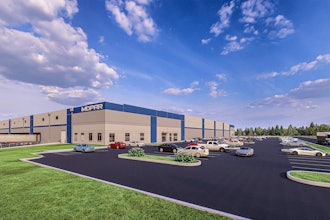Gov. Gretchen Whitmer said Wednesday that Michigan's incentives for Fiat Chrysler to add 6,500 jobs in the state will not require legislative approval.
She said the state will use existing economic development programs to assist the automaker's planned $4.5 billion expansion, which was announced Tuesday. Details will be provided at an upcoming, yet-to-be scheduled meeting of the Michigan Strategic Fund, which gives companies money in exchange for job creation and investment, she said.
A memorandum of understanding between Detroit and Fiat Chrysler calls for state and local incentives "consistent with those provided to other major assembly plants" in the U.S. One option specifically mentioned is waiving or reducing a state tax assessed on manufacturers' equipment.
Whitmer and the state's economic development agency have said little about the incentives that will be offered to the automaker, which, like fellow Michigan-based carmakers General Motors and Ford, qualifies for generous state tax credits that extend through 2029.
Fiat Chrysler subtracts from its business taxes certain amounts for each job it adds or keeps in the state, with higher deductions for higher-paying jobs. Under a 2015 deal that capped the total value of the automaker's future credits after state officials were caught off guard by higher-than-expected redemptions that affected the budget, Fiat Chrysler can claim an increasing number of jobs, including 25,000 this year — up from 21,000 in 2018 — and 27,000 in 2029.
It is unclear if the company or state officials will seek to restructure that agreement. State incentives are supposed to be ironed out within the same 60-day window in which Detroit will assemble land so Fiat Chrysler can reopen an engine plant in the city and convert another in the same complex into a future assembly plant.
Whitmer, a Democrat who took office last month, said of the state incentives: "Everything will be public. My philosophy's always been that we need to have tools in our toolbox. We also need to insist on accountability and transparency and that we get a benefit for the people of Michigan. There's no question that 6,500 jobs (paying) $58,000 a year is going to be an enormous boost for all of us in Michigan."
One potential option for state economic development officials is the "Good Jobs" incentive program, which was enacted into law in 2017 in a bid to attract large-scale business expansions. Companies can keep all or half of the income taxes associated with new jobs for up to 10 years, if the jobs pay at least the regional average.
Michigan Economic Development Corp. CEO Jeff Mason said last month that about a quarter of the maximum $200 million in "Good Jobs" incentives, or $50 million, had been authorized for three projects to date.






















